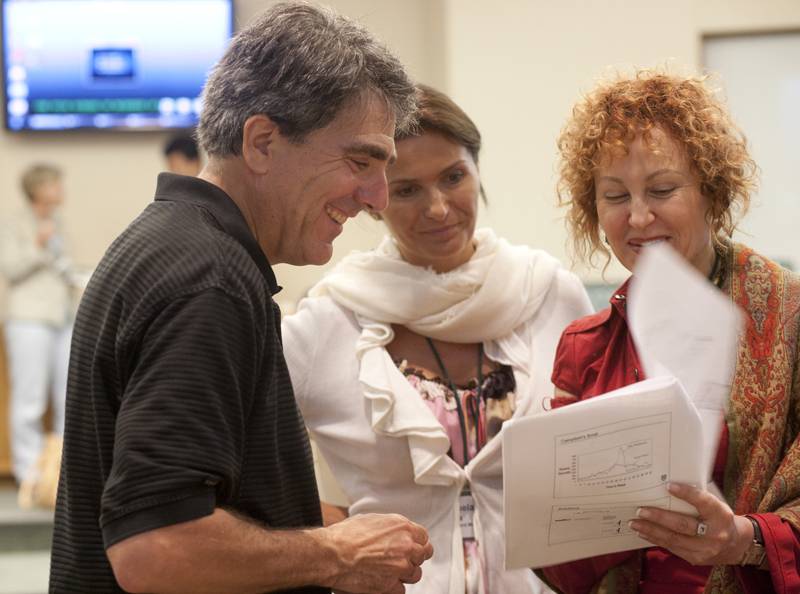A Conversation with M. Eric Johnson
Tuck’s new Associate Dean for the MBA Program adds to his long list of responsibilities at the school.

Tuck’s new Associate Dean for the MBA Program adds to his long list of responsibilities at the school.
“Besides making sure we have the best MBA program on the planet,” Johnson says, “my job is to think about how these centers and initiatives can contribute to that and be leveraged across the school for more impact.”
Why did you choose to add this job to your long list of responsibilities at Tuck?
The majority of faculty don’t aspire to end up in the dean’s office. I particularly like building things and working with organizations and really enjoy working in teams. So in many ways it fits my personality to be involved with the dean’s office because now I inherit some new team members in the MBA Program Office (MBAPO) and the centers and initiatives
While the faculty designs and delivers the curriculum, the MBAPO coordinates the MBA program from pre-enrollment programs through graduation. They provide academic support, coordinate student club activity, serve as liaison with the student board, and help each student make the most of their two years at Tuck. I am looking forward to learning more about the non-academic portions of the Tuck experience and working with the MBAPO to ensure that Tuck transforms students both intellectually and personally.
The centers and initiatives at Tuck are charged with three things: working with alumni and executives, conducting research, and bringing those lessons back to the MBA program. How is that model different from other business schools?
What’s interesting about Tuck is that most of our competitors have centers that are primarily vehicles for Ph.D. education and grant or research funding. They bring very little of it back to the MBA program. Tuck’s centers and initiatives are not some funding mechanism for doctoral candidates—we don’t have any—but to bring a lot of opportunities to students on a Tuck scale. If a student, say, wants to really think about technology in the MBA program, a center leverages our small faculty to have a much bigger impact.
What is it about Tuck’s MBA program that excites you, and how do you see it evolving?
At almost all the other top business schools, they’ve grown their programs and the size of classes. In many ways, Tuck is going in almost the reverse direction. We’re thinking: how do we create more and more personal experiences for students? That might mean more Research-to-Practice Seminars; we’d like to give every Tuck student the chance to be in one. But it’s not just in the classroom. We’re doing the same thing in the centers with the fellows program with the learning expeditions, and with the Tuck Global Consultancy. In every case, these are unique experiences because of our personal scale.
A second big thrust will be around global experiences and the global education of our students. Not only will we be expanding the options students have to gain global experience, but through the new Center for Global Business and Government we will prepare our graduates to understand and flourish in the global economy, where business and government are more and more intertwined.
As the director of the Center for Digital Strategies, technology must always be on your mind. How do you plan to implement new technologies in the MBA program?
There are three areas we’re focused on right now. First, our use of Chatter and social media to on-board new students. We’d like to take that to another level with a much more personalized career-development process, so a current student could use it to drive their own job search process.
Second, we’ve experimented with enhancing student learning by using technology to introduce fundamental concepts and free up classroom time for deeper, richer discussion. We’re going to continue to push that. We’re constantly exploring different instructional technologies, like our experiment bringing iPads into the classroom through Apple’s AirPlay.
Lastly, the new myTUCK platform that was developed to bring alumni the best of Tuck, custom-tailored to their interests, through a highly-interactive interface, offers a model that we hope to extend to students while they are here in Hanover.